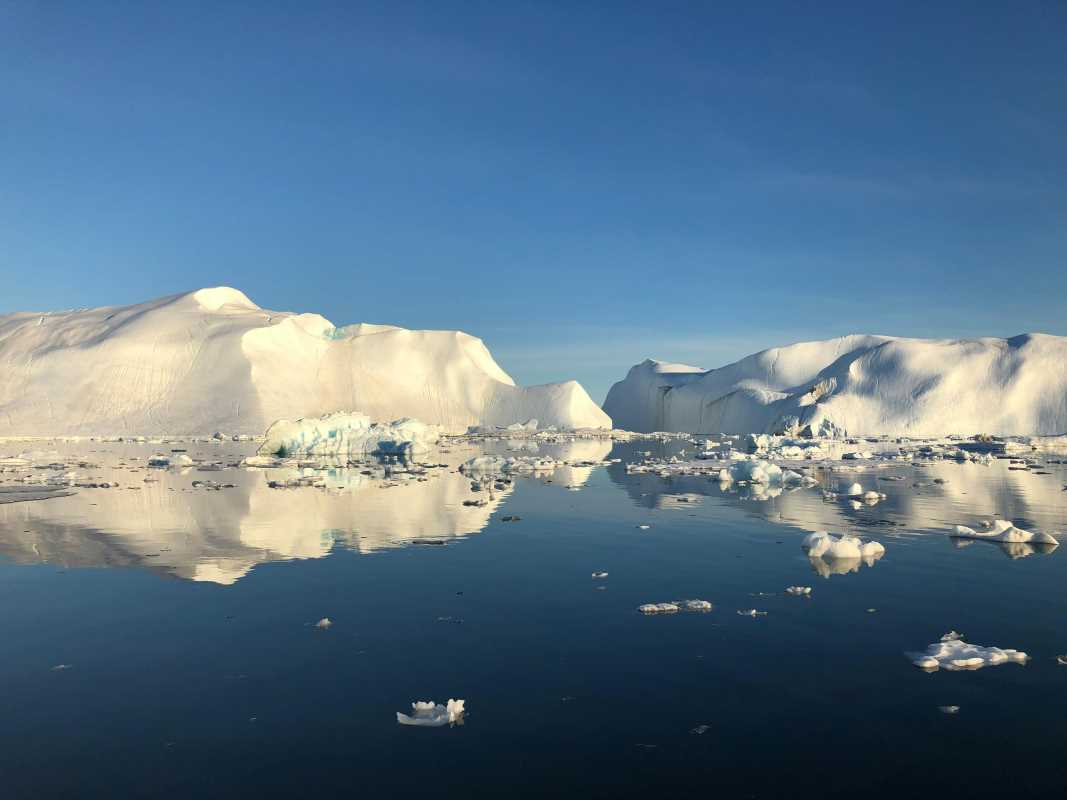The crisp Antarctic night blankets the research station in a serene silence, broken only by the distant crack of shifting ice and the occasional howl of the frigid wind. Under a canopy of countless stars, the landscape takes on an otherworldly beauty, glowing with the ethereal blues and whites of endless icebergs stretching toward the horizon. Colonies of penguins huddle together for warmth, their calls echoing through the vast, frozen expanse, while seals occasionally break the quiet with their low, mournful sounds. Inside the station, scientists work late into the night, poring over data or sharing stories in the cozy common area, creating a sense of camaraderie in this harsh yet awe-inspiring environment. Living in such a remote frontier offers a unique blend of isolation and community, where each day brings a mixture of routine tasks and exciting discoveries, reminding all who are there of the fragile beauty of this icy world.
The Frozen Landscape: Icebergs and Penguins
The polar regions of our planet have long captured the imagination of adventurers and scientists alike. These remote, frozen landscapes offer a glimpse into a world unlike any other, where towering icebergs loom over vast expanses of snow and ice.
- Icebergs: These massive ice formations primarily consist of freshwater and can vary in size from small fragments to towering giants stretching hundreds of feet into the sky.
- Penguins: Species such as the Emperor and Adelie penguins live here, with millions breeding on the icy shores each year.
- Dynamic Environment: The Antarctic environment changes continuously, with icebergs constantly calving and migrating, shaping the ecosystem around them.
- Unique Ecosystem: The interaction between icebergs and marine life creates a rich habitat that supports a diverse range of species, from microscopic plankton to majestic whales.
Despite its harshness, Antarctica is also home to some incredible wildlife that has adapted to survive in this unique environment. One of the most iconic species found here are penguins, with species such as Emperors and Adelies calling the frozen landscape their home. These flightless birds have a special place in popular culture, known for their waddling walk and comical antics.
Life at the Research Station
The remote and harsh conditions of Antarctica make it an ideal location for scientific research. Scientists and researchers brave the extreme weather to study everything from climate change to marine life.
- Mornings begin with a hearty breakfast and a briefing on the day's research objectives, which ensures everyone is aligned and prepared.
- Researchers split into teams to conduct fieldwork, which may include ice sampling, wildlife observation, or operating sophisticated scientific equipment.
- Afternoons often focus on data analysis and collaborative meetings, where findings are discussed and plans adjust as needed.
- Evenings provide time for relaxation and personal pursuits, whether it's reading, cooking, or simply enjoying the breathtaking views of the Antarctic night.
- Regular maintenance of the station's facilities keeps everything running smoothly, from power systems to communication networks.
Challenges and Rewards
Living at an Antarctic research station brings its set of challenges. The extreme cold tests both physical endurance and mental resilience, as residents must adapt to long periods of darkness during winter months. Isolation can lead to feelings of loneliness, making strong interpersonal relationships essential for maintaining morale. The harsh environment also demands meticulous planning and resource management to ensure safety and sustainability.
The rewards are equally profound. The sense of accomplishment from contributing to groundbreaking scientific research feels unmatched. Witnessing the pristine beauty of the polar landscape and observing wildlife in their natural habitat provides unforgettable moments. The camaraderie among researchers creates a deep sense of community, as individuals from diverse backgrounds come together with a common purpose. These experiences not only enrich one's professional life but also leave lasting personal memories.
Stories from Researchers
Mary Regan, a marine biologist stationed at the research facility, shares her transformative experience: “Working closely with icebergs and penguins taught me patience and resilience. There were days when the isolation felt overwhelming, but the sheer beauty of the environment and the dedication of my colleagues kept me motivated. One night, we witnessed a solitary leopard seal swimming gracefully beneath the moonlight – a moment that underscored why I chose this life.”
Another researcher, Tom Harris, an atmospheric scientist, recalls the stark contrasts of Antarctic life: “The stark silence of the ice is both intimidating and inspiring. Conducting experiments in such an extreme setting pushed me to innovate and think creatively. The relationships forged here are incredible – we rely on each other for support and companionship, making every challenge surmountable.”
Reflections on Antarctic Research
Antarctic research plays a crucial role in understanding global climate patterns, marine ecosystems, and the effects of human activity on untouched environments. The data collected here provides invaluable insights that inform policies and conservation efforts worldwide. The collaborative spirit among international research teams exemplifies the importance of global cooperation in addressing challenges that transcend borders.
Living and working in Antarctica also highlights the resilience and adaptability of humans in the face of adversity. The experiences gained at research stations contribute to advancements in various fields, from renewable energy solutions to innovative communication technologies. As climate change continues to impact polar regions, the work conducted in these remote locations becomes increasingly vital for predicting future environmental shifts and developing plans to mitigate their effects.
Spending a night at an Antarctic research station offers a profound glimpse into a world of ice and resilience. The blend of scientific pursuit, natural beauty, and human connection underscores the significance of these remote outposts. As researchers continue to explore and protect this fragile ecosystem, their dedication ensures that the wonders of Antarctica remain a beacon of inspiration and knowledge for generations to come.







